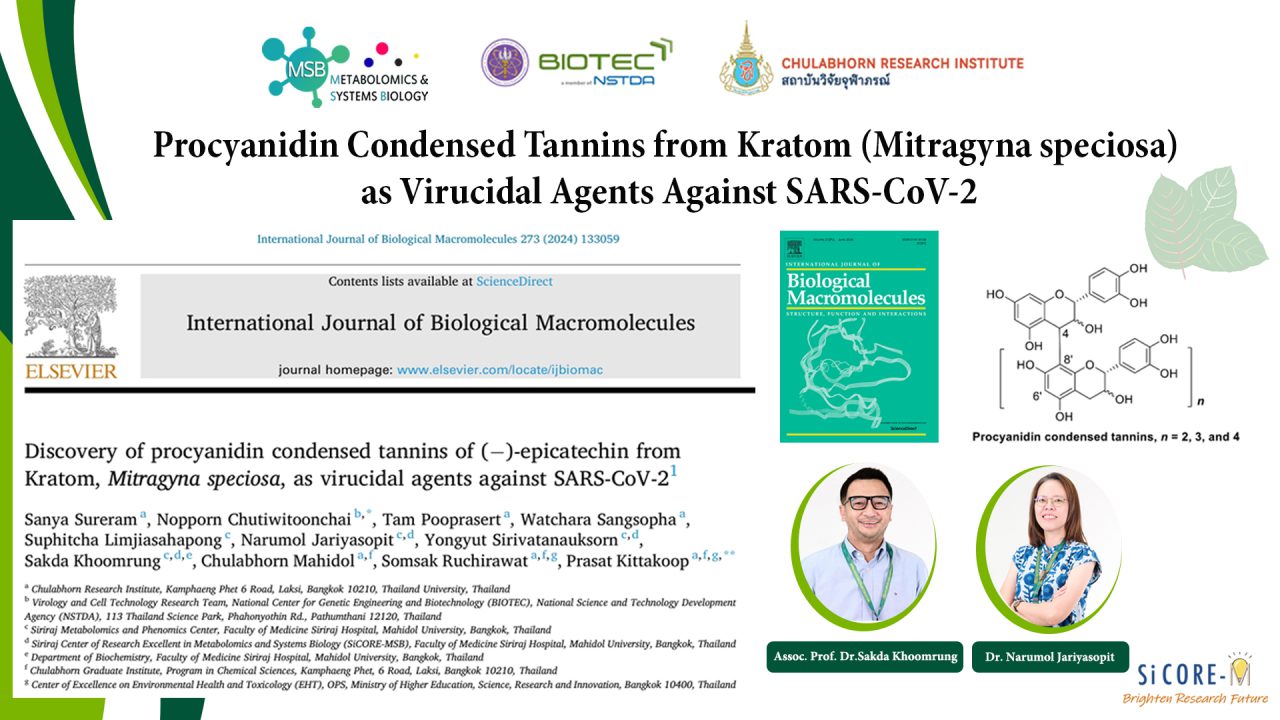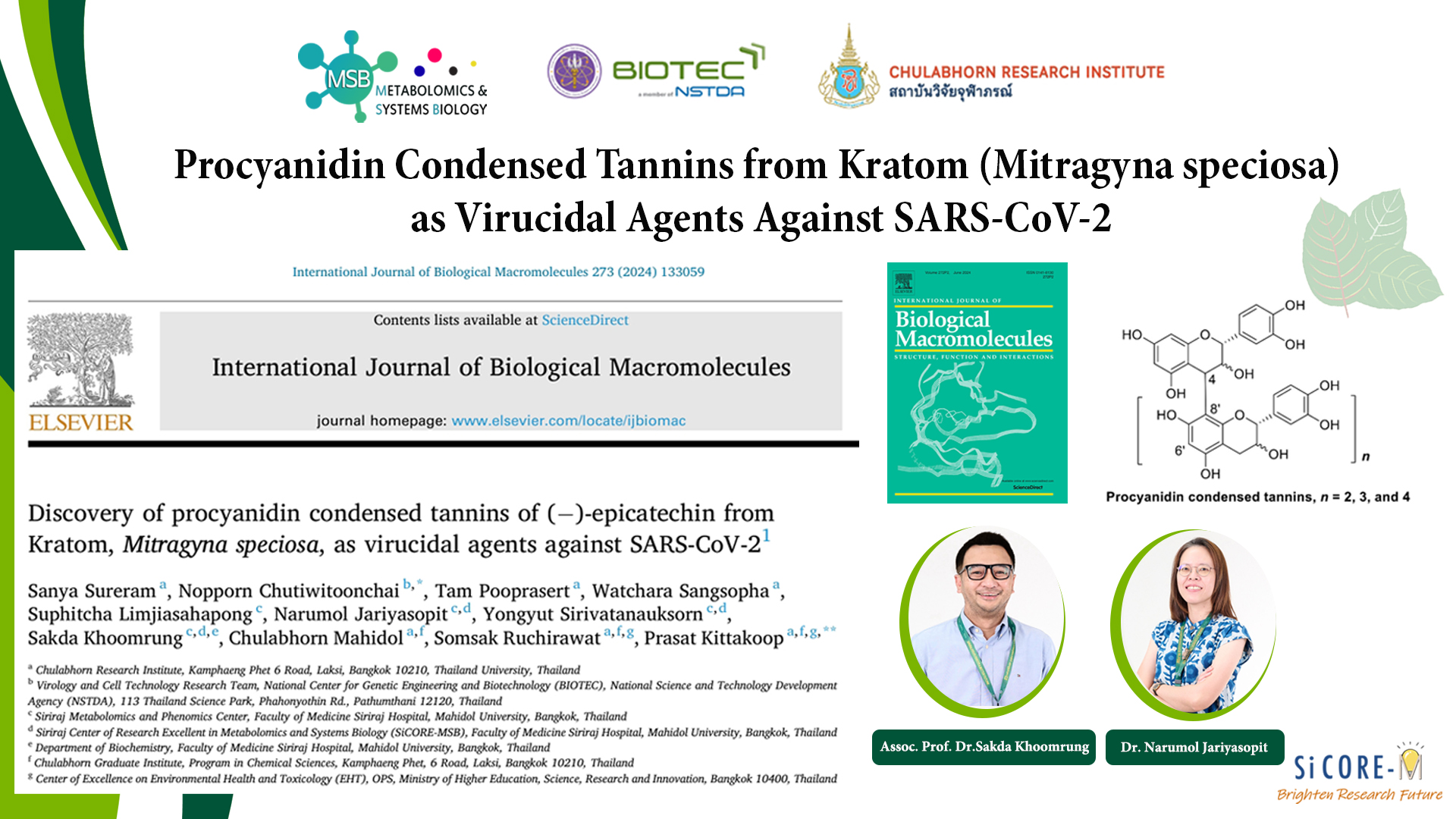Procyanidin Condensed Tannins from Kratom (Mitragyna speciosa) as Virucidal Agents Against SARS-CoV-2
We are delighted to share the publication of groundbreaking research by Assoc. Prof. Dr. Sakda Khoomrung (co-author) from the Siriraj Center of Research Excellence in Metabolomic and Systems Biology (SiCORE-MSB), Faculty of Medicine, Siriraj Hospital, Mahidol University. This research, published in the International Journal of Biological Macromolecules on June 10, 2024, unveils the discovery of virucidal agents against SARS-CoV-2 in Kratom. The publication is available for access via the following link: https://www.sciencedirect.com/science/article/pii/S0141813024038649?via%3Dihub
This research paper represents a collaboration between the Siriraj Center of Research Excellence in Metabolomic and Systems Biology (SiCORE-MSB) and the Virology and Cell Technology Research Team at the National Center for Genetic Engineering and Biotechnology (BIOTEC) and Chulabhorn Research Institute. Their collaborative efforts were instrumental in advancing our understanding of the virucidal properties of Kratom (Mitragyna speciosa) compounds against SARS-CoV-2.
Previous studies have primarily focused on bioactive alkaloids in Kratom, but non-alkaloid compounds have yet to be extensively explored for their biological activities. In this study, antiviral and virucidal assays of a methanol leaf extract of Kratom, M. speciosa, demonstrated significant virucidal activity against SARS-CoV-2. Activity-guided isolation of the methanol leaf extract identified B-type procyanidin condensed tannins of (—)-epicatechin as potent virucidal compounds. The fraction containing condensed tannins exhibited virucidal activity with an EC50 value of 8.38 μg/mL and a selectivity index (SI) value >23.86. Structural analysis using LC-MS/MS and MALDI-TOF MS confirmed the presence of B-type procyanidin condensed tannins in Kratom. At the same time, gel permeation chromatography (GPC) revealed an average molecular weight of 238,946 Da for high molecular-weight condensed tannins. Although (—)-epicatechin, a major component in Kratom leaves, did not exhibit virucidal activity, its macromolecules, procyanidin condensed tannins, displayed potent activity against SARS-CoV-2. This finding highlights the significance of high molecular weight polyphenols in the virucidal activity of Kratom compounds.




